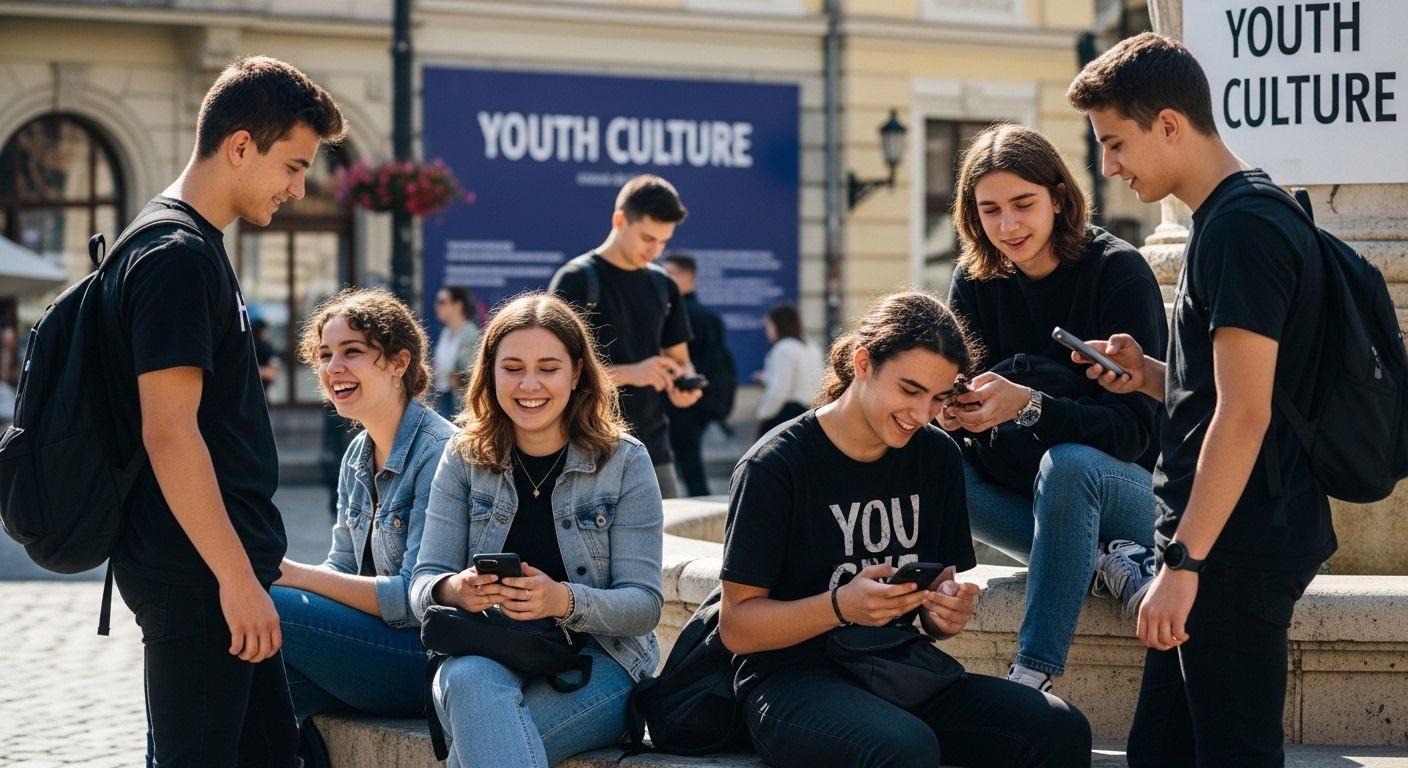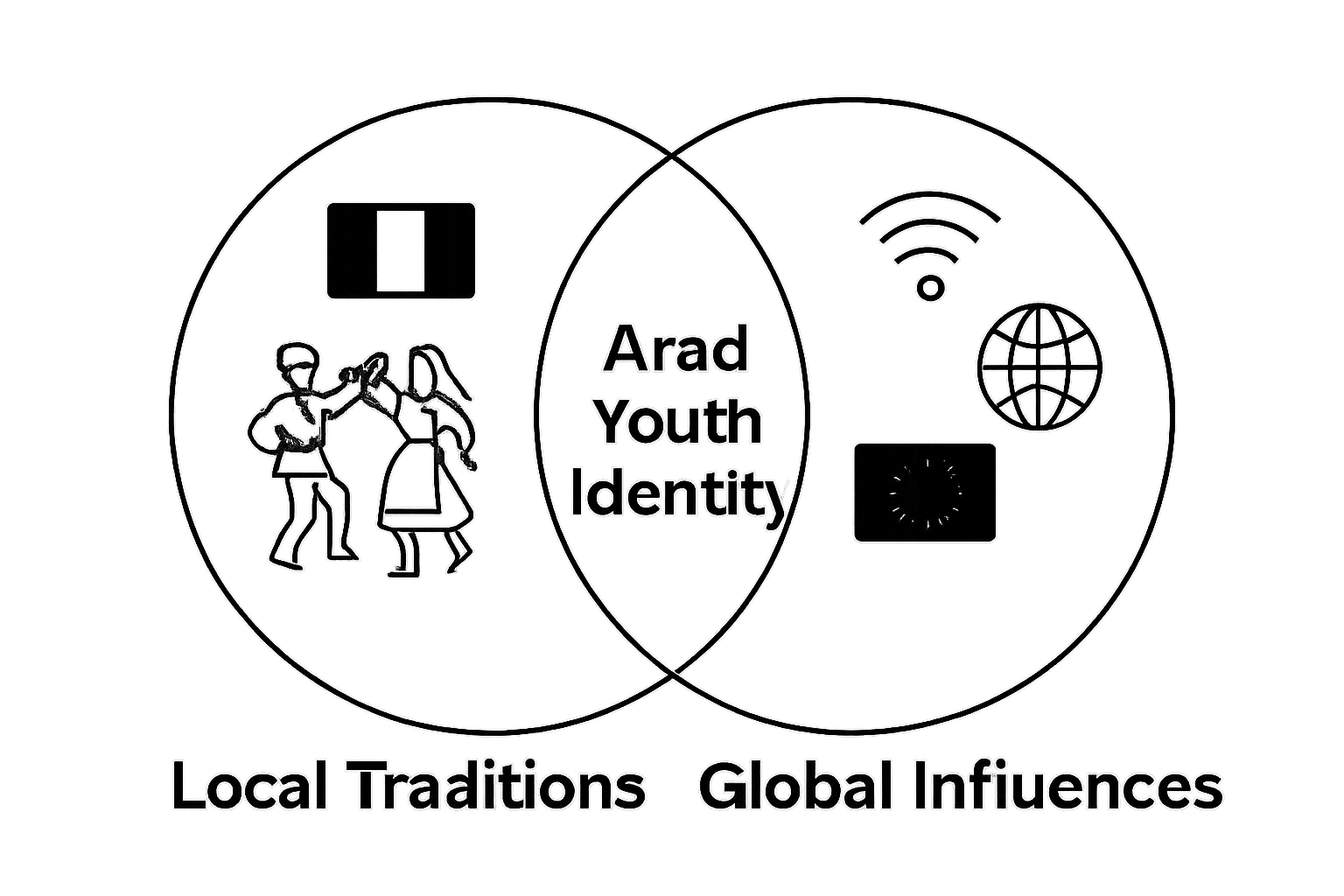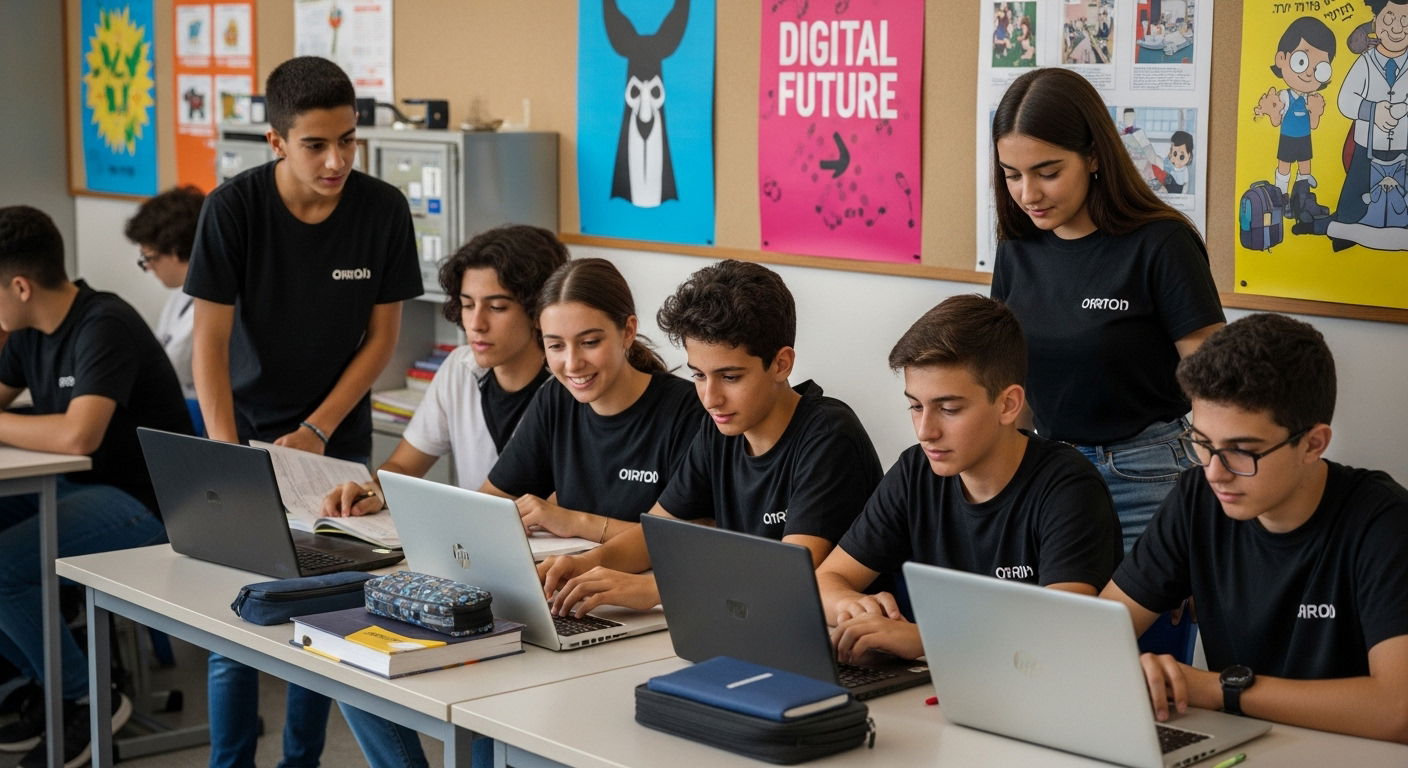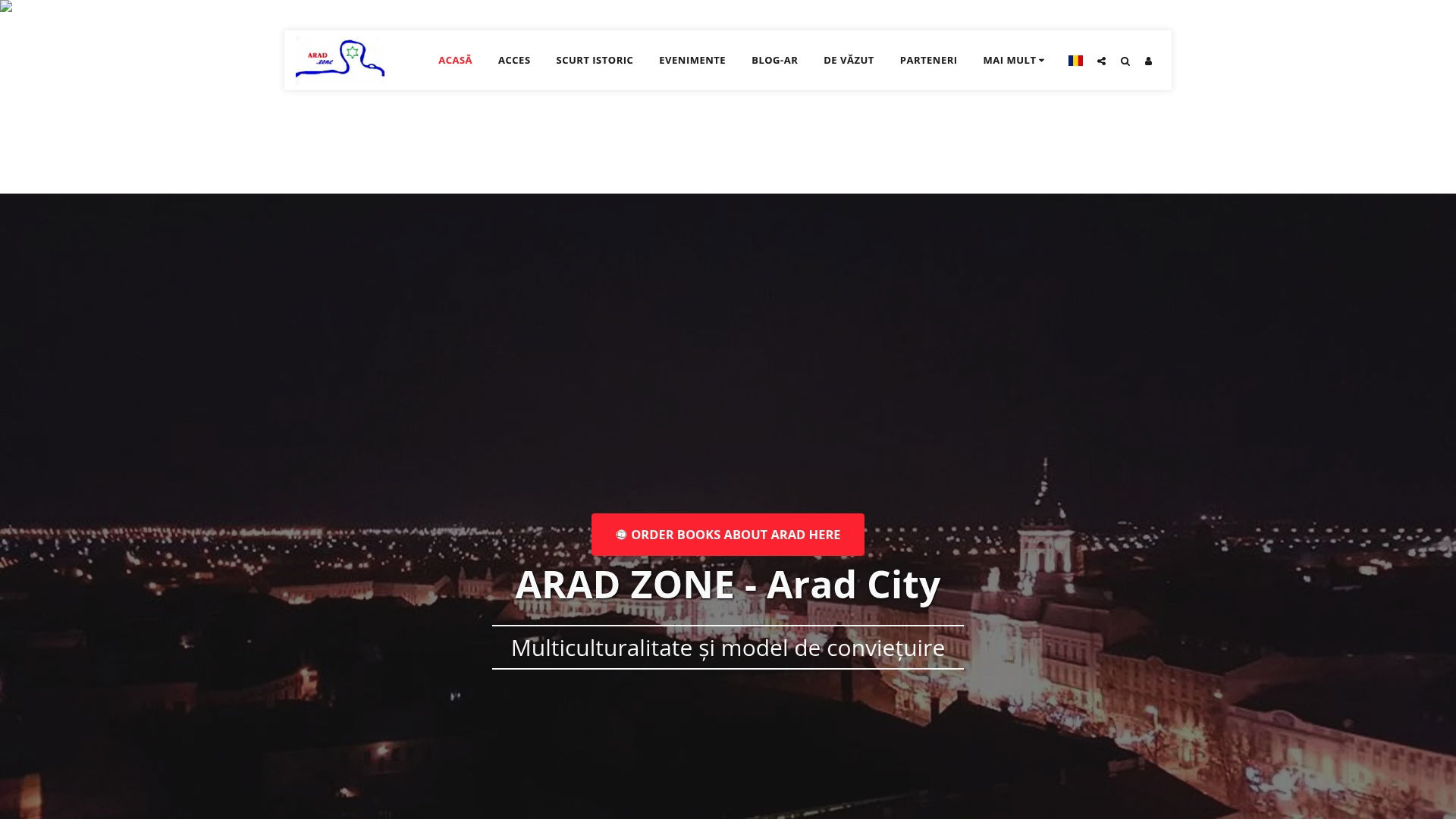Understanding Arad Youth Culture Explained

Arad’s young people are blending Romanian heritage with worldwide trends at a pace few cities can match. Nearly 90 percent of high school students in Arad now speak more than one language and navigate digital spaces with ease. That may sound like the start of a standard youth success story. But what actually sets this generation apart is how they use these skills to break old boundaries and invent bold new ways to belong, both locally and globally.
Table of Contents
- What Defines Arad Youth Culture?
- Cultural Identity And Global Connections
- Social Dynamics And Educational Perspectives
- The Historical Context Of Youth Trends In Arad
- Political Transitions And Generational Experiences
- Cultural Institutions And Youth Development
- Influences On Arad Youth: Global And Local
- Digital Connectivity And Cultural Identity
- Economic And Educational Transformations
- Key Elements Of Arad Youth Culture Today
- Social Engagement And Digital Activism
- Cultural Values And Personal Identity
- The Future Of Youth Culture In Arad
- Digital Competency And Sustainable Well-being
- Creative And Interdisciplinary Engagement
Quick Summary
| Takeaway | Explanation |
|---|---|
| Arad youth blend local and global influences. | They skillfully navigate between their Romanian heritage and contemporary global trends, shaping a unique identity. |
| Education fosters critical thinking and activism. | Educational institutions encourage engagement with social issues, empowering youth to drive change in their communities. |
| Digital technology shapes cultural identity. | Connectivity enables multilingual communication and participation in global communities while preserving local traditions. |
| Youth culture emphasizes social justice engagement. | Young people in Arad actively mobilize for social causes, using digital platforms for activism and community organization. |
| Future trends focus on creative and interdisciplinary approaches. | Emerging cultural expressions prioritize collaboration across disciplines, with a commitment to addressing social issues through creativity. |
What Defines Arad Youth Culture?
Arad youth culture represents a complex tapestry of social dynamics, educational experiences, and emerging generational perspectives that distinguish young people in this Central European city. Unlike stereotypical youth narratives, Arad's younger generation demonstrates a unique blend of traditional Romanian values and progressive, globally connected mindsets.
Cultural Identity and Global Connections
The youth in Arad navigate a fascinating intersection between local heritage and international influences. According to Aurel Vlaicu University research, high school students exhibit nuanced perspectives about cultural identity that go beyond geographic boundaries. These young individuals are characterized by:
- Strong connection to Romanian cultural traditions
- High digital literacy and global awareness
- Multilingual communication skills
- Active engagement with international digital platforms
This generation understands their local context while simultaneously participating in global conversations, creating a dynamic cultural ecosystem that challenges traditional boundaries.
Social Dynamics and Educational Perspectives
Education plays a pivotal role in shaping Arad youth culture. The city's educational institutions have become critical spaces for developing critical thinking and social awareness. Young people in Arad are not passive recipients of information but active participants in creating social change.Key characteristics of their educational and social approach include:
- Emphasis on critical thinking and independent research
- Strong interest in social justice and community development
- Proactive engagement with technological innovations
- Openness to diverse perspectives and intercultural dialogue
The research from Comparative Cultural Studies highlights that Arad's youth are increasingly sophisticated in their understanding of complex social issues, demonstrating a maturity that transcends traditional generational stereotypes.Understanding Arad youth culture requires recognizing the intricate balance between local traditions and global influences, creating a unique generational identity that is both rooted and forward-looking.
The Historical Context of Youth Trends in Arad
The youth trends in Arad have been profoundly shaped by the city's complex historical trajectory, reflecting the broader societal transformations experienced across Romania during the 20th and early 21st centuries. Understanding these trends requires exploring the intricate layers of political, cultural, and social changes that have influenced generations of young people in this Central European city.
Political Transitions and Generational Experiences
Arad's youth culture has been dramatically impacted by significant political transitions, particularly the fall of communist regime in 1989 and Romania's subsequent integration into the European Union in 2007. Historical research from Aurel Vlaicu University reveals how these political shifts fundamentally transformed youth expectations and opportunities.Key historical markers that shaped youth perspectives include:
- The communist era's strict social control and limited individual freedoms
- The 1989 Romanian Revolution and subsequent democratic transitions
- Romania's European Union membership and expanded international opportunities
- Rapid technological and digital infrastructure development
Each of these transitions represented more than political changes. They signaled profound cultural shifts that reshaped how young people in Arad understood their identity, potential, and relationship with global society.The table below compares how different historical periods have shaped youth culture in Arad, highlighting the main influence of each era on generational experiences.
| Historical Period | Main Influence on Youth Culture | Notable Impact |
|---|---|---|
| Communist Era (pre-1989) | Strict social control | Limited individual freedoms and creative expression |
| Post-1989 Revolution | Democratic transition | Expanded social and cultural possibilities |
| EU Membership (since 2007) | International integration | Greater access to education, mobility, and global trends |
| Digital Age (21st century) | Technological innovation | Rapid digital literacy and global connectivity |
Cultural Institutions and Youth Development
Arad's cultural institutions have played a critical role in nurturing youth identity and social engagement. The Old Theatre of Arad, established in 1817, symbolizes the city's long-standing commitment to cultural education and artistic expression. These institutions have consistently provided platforms for young people to explore creativity, critical thinking, and social discourse.The evolution of youth spaces in Arad demonstrates a remarkable transformation from strictly controlled communist-era environments to dynamic, open platforms that encourage individual expression and multicultural dialogue. Young people now have unprecedented access to educational resources, international exchange programs, and global networking opportunities that were unimaginable just three decades ago.Understanding Arad's youth trends requires recognizing the city's remarkable journey from a tightly controlled social environment to a vibrant, globally connected community that empowers its younger generations to dream, create, and innovate.
Influences on Arad Youth: Global and Local
The youth of Arad represent a fascinating microcosm of cultural negotiation, where global influences and local traditions intersect to create a unique generational identity. Their experiences are characterized by a delicate balance between preserving Romanian cultural heritage and embracing international perspectives.
Digital Connectivity and Cultural Identity
Digital technologies have fundamentally transformed how young people in Arad understand themselves and their place in the world. Comparative Cultural Research reveals that urban youth with extensive internet access develop hybrid cultural identities that transcend traditional geographic boundaries.Key characteristics of digital cultural engagement include:
- Seamless multilingual communication
- Active participation in global online communities
- Simultaneous connection to local Romanian traditions
- Ability to curate personal cultural experiences
This digital connectivity enables Arad's youth to simultaneously belong to their local community and a broader global network, creating a fluid and dynamic cultural experience.
Economic and Educational Transformations
The economic landscape of Arad has significantly influenced youth perspectives, with European Union membership opening unprecedented opportunities for education, professional development, and international mobility. Young people are no longer confined to local economic structures but can envision careers that span multiple countries and cultural contexts.Important factors shaping youth economic perspectives include:
- Increased access to international educational programs
- Growing entrepreneurial opportunities
- Enhanced professional mobility within the European Union
- Exposure to diverse economic models and innovation strategies
These transformations have created a generation of young people in Arad who are strategically adaptable and view their local context as a launching pad for global opportunities.Understanding the influences on Arad youth requires recognizing the complex interplay between technological connectivity, economic opportunities, and cultural heritage. They are not simply passive recipients of global trends but active creators of a nuanced, multicultural identity that honors both their local roots and global aspirations.

Key Elements of Arad Youth Culture Today
Arad youth culture represents a dynamic fusion of traditional Romanian values and contemporary global influences, creating a unique generational landscape that defies simple categorization. Today's young people in Arad are actively constructing identities that are simultaneously rooted in local heritage and connected to international trends.
Social Engagement and Digital Activism
Social media research demonstrates that Arad's youth are not passive consumers of information but active digital citizens who leverage technology for social change and personal expression. Their approach to social engagement is characterized by:
- Sophisticated digital communication skills
- Strong commitment to social justice causes
- Ability to mobilize communities through online platforms
- Critical awareness of global and local social issues
This generation uses digital tools not just for entertainment but as powerful mechanisms for community organizing, political discourse, and personal empowerment.
Cultural Values and Personal Identity
The contemporary youth culture in Arad represents a complex negotiation between preserving cultural traditions and embracing progressive, global perspectives. Young people are developing multidimensional identities that reject rigid categorizations and celebrate individual complexity.Key cultural characteristics include:
- Multilingual communication capabilities
- Openness to diverse cultural experiences
- Commitment to personal authenticity
- Balanced approach to traditional and modern values
These young individuals are creating a nuanced cultural narrative that respects Romanian heritage while simultaneously engaging with global youth movements and contemporary social dynamics.Understanding Arad youth culture today means recognizing their role as creative architects of social transformation, who skillfully navigate between local roots and global aspirations.This table outlines the defining characteristics of Arad youth culture today, summarizing key features related to their social engagement, cultural identity, and educational approach.
| Feature | Description |
|---|---|
| Cultural Identity | Blend of Romanian traditions and global influences |
| Multilingual Communication | High proficiency in multiple languages |
| Digital Literacy | Advanced skills in technology and digital platforms |
| Social Engagement | Active participation in community and online activism |
| Critical Thinking | Focus on independent research and mature perspective on issues |
| Openness to Diversity | Embraces intercultural dialogue and diverse experiences |
| Commitment to Social Justice | Drives social change and community development |
The Future of Youth Culture in Arad
The emerging youth culture in Arad is poised to become a transformative force, characterized by innovative approaches to technology, social engagement, and cultural preservation. This generation stands at a critical intersection of technological advancement, global connectivity, and local heritage, positioning themselves as architects of meaningful social change.
Digital Competency and Sustainable Well-being
Research on Youth Sustainable Digital Wellbeing highlights the critical importance of developing comprehensive digital competencies that extend beyond technical skills. Young people in Arad are increasingly focused on creating holistic digital experiences that prioritize personal and community well-being.Key strategic priorities for digital development include:
- Ethical technology engagement
- Mental health awareness in digital spaces
- Critical digital literacy skills
- Responsible online community building
This approach represents a sophisticated understanding of technology as a tool for personal growth and social connectivity, rather than merely a consumption platform.
Creative and Interdisciplinary Engagement
The future of Arad's youth culture is deeply intertwined with creative expression and interdisciplinary collaboration. The emergence of platforms like the Youth Art Festival demonstrates a commitment to breaking traditional disciplinary boundaries and fostering innovative thinking.Emerging trends in creative engagement highlight:
- Fusion of artistic disciplines
- Technology-enhanced creative processes
- Cross-cultural collaborative projects
- Emphasis on social impact through creative work
Young people are increasingly viewing creativity not as a standalone skill but as a critical mechanism for social problem solving and cultural innovation.The trajectory of Arad's youth culture suggests a future where global perspectives and local traditions are not competing forces but complementary elements of a dynamic, forward-looking identity. These young individuals are not merely adapting to change but actively designing the social, technological, and cultural landscapes of tomorrow.

Experience Arad's Unique Youth Culture Firsthand
Curious about how Arad's young generation blends local tradition with global trends, yet feel distanced from truly experiencing these vibrant dynamics yourself? The article explores Arad youth's digital innovation, their cultural identity, and their role as active social changemakers. But understanding can only go so far without direct connection.Start your journey today at Arad.zone where you will dive deeper into untold stories, must-read books, and insider blog insights about Arad's multicultural heartbeat. Discover the real people shaping Arad’s future and find exclusive content not found anywhere else. Engage now to see why Arad is Romania’s hidden gem and why you should get involved in its evolving youth scene today.

Frequently Asked Questions
What are the key characteristics of Arad youth culture?
Arad youth culture is characterized by a blend of traditional Romanian values and global influences, including strong connections to local heritage, high digital literacy, multilingual communication skills, and active engagement with international platforms.
How has education influenced the youth culture in Arad?
Education plays a crucial role in Arad youth culture by fostering critical thinking, independent research, and social engagement. Young people are active participants in shaping community change rather than passive recipients of information.
What digital influences are shaping the identities of young people in Arad?
Digital technologies have transformed Arad youth identities, allowing for seamless multilingual communication and active participation in global online communities while maintaining ties to local traditions, resulting in hybrid cultural identities.
How are young people in Arad engaging in social justice and community issues?
Young people in Arad leverage digital tools for activism, showcasing strong commitments to social justice causes, mobilizing communities through social media, and fostering critical awareness of local and global social issues.
Recommended
- Proiectanți ai palatelor și bisericilor din Arad. Arhitecții arădeni. - ARAD Zone - Arad City - stadt, grad, oras, varos
- Economie și industrie arădeană - ECONOMIE ȘI INDUSTRIE ARĂDEANĂ - ARAD Zone - Arad City - stadt, grad, oras, varos
- ZILELE CULTURII SÂRBE LA ARAD 2021- ДАНИ СРПСКЕ КУЛТУРЕ У АРАДУ 2021 - ARAD Zone - Arad City - stadt, grad, oras, varos
- ZILELE MAGHIARE ARĂDENE 2025